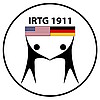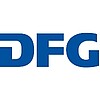A5 (2013 - 2016) – The role of mast cell-derived proteases in experimental asthma
Project:
Asthma is a chronic airways disease characterized by inflammation, remodeling and AHR. The Petersen lab found that PMNs play a previously unrecognized role in exacerbation of the asthmatic phenotype including induction of pulmonary eosinophilia, goblet cell hyperplasia, and AHR. The molecular pathways involved in the regulation of PMN recruitment and activation in the asthmatic lung are not yet fully delineated. Experimental evidence from the Petersen and the Hogan labs suggests a pivotal role for activated MCs, in particular for the MC protease 1 (Mcpt-1) and Mcpt-4 in allergen absorption and neutrophil recruitment into the asthmatic lung. Based upon these observations we hypothesize that MC-derived chymases regulate airway epithelial and vascular endothelial extravasation, exacerbate inflammation and modulate pulmonary neutrophil recruitment.
Aims:
- Define the role of MC-derived chymases in the onset and maintenance of the asthmatic phenotype.
- Analyze the effect of Mcpt-1/Mcpt-4 on endothelial and epithelial barrier function in vitro.
- Delineate the role of chymase-cleaved products on neutrophil functions (activation and chemotaxis).
- Define the temporal and spatial sites of Mcpt-1 and Mcpt-4 activity in vivo.






